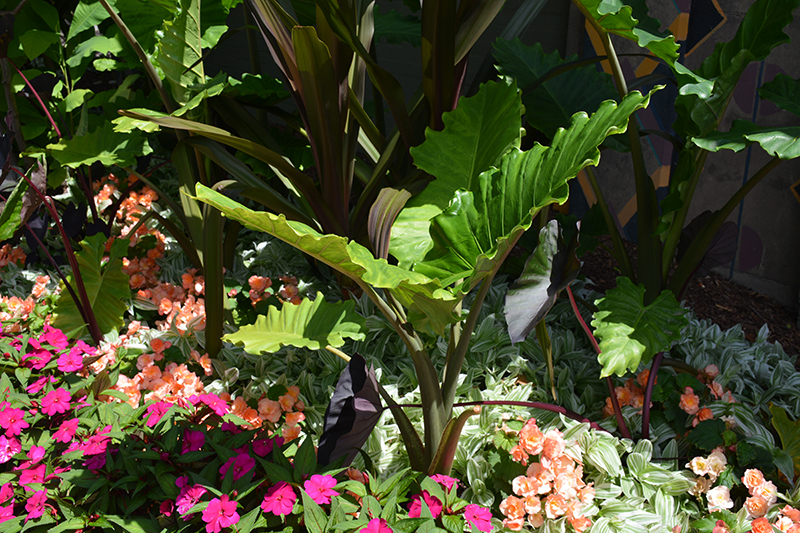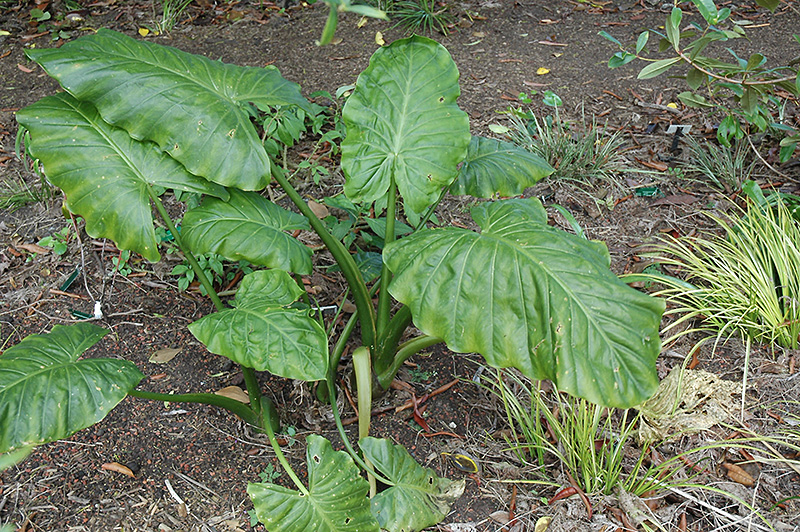>> Home
Height: 12 feet
Spread: 10 feet
Sunlight:
![]()
![]()
Hardiness Zone: 8b
Other Names: Taro
Description:
Amazing super large leaves grow from the center of this giant taro and can reach 12 feet in tropical climes; elegant as a large accent or screening; can tolerate some cold and grows well in containers
Ornamental Features
Elephant's Ear features solitary conical creamy white hooded flowers with white centers rising above the foliage in mid summer. Its attractive large glossy heart-shaped leaves remain dark green in color throughout the year.
Landscape Attributes
Elephant's Ear is an open herbaceous evergreen perennial with an upright spreading habit of growth. Its medium texture blends into the garden, but can always be balanced by a couple of finer or coarser plants for an effective composition.
This is a relatively low maintenance plant, and usually looks its best without pruning, although it will tolerate pruning. It has no significant negative characteristics.
Elephant's Ear is recommended for the following landscape applications;
- Mass Planting
- General Garden Use
- Container Planting
Planting & Growing
Elephant's Ear will grow to be about 12 feet tall at maturity, with a spread of 10 feet. It grows at a medium rate, and under ideal conditions can be expected to live for approximately 5 years. As an evegreen perennial, this plant will typically keep its form and foliage year-round.
This plant does best in full sun to partial shade. It is quite adaptable, prefering to grow in average to wet conditions, and will even tolerate some standing water. It is not particular as to soil type or pH. It is somewhat tolerant of urban pollution. This species is not originally from North America, and parts of it are known to be toxic to humans and animals, so care should be exercised in planting it around children and pets.
Elephant's Ear is a fine choice for the garden, but it is also a good selection for planting in outdoor pots and containers. Its large size and upright habit of growth lend it for use as a solitary accent, or in a composition surrounded by smaller plants around the base and those that spill over the edges. It is even sizeable enough that it can be grown alone in a suitable container. Note that when growing plants in outdoor containers and baskets, they may require more frequent waterings than they would in the yard or garden.
This plant is not reliably hardy in our region, please use with caution in areas where hardiness is a factor.

